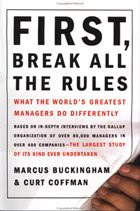
“In his lifetime, Ronald Reagan was such a cheerful and invigorating presence that it was easy to forget what daunting historic tasks he set himself. He sought to mend America's wounded spirit, to restore the strength of the free world and to free the slaves of Communism.” That's how Lady Thatcher started her great eulogy of Ronald Reagan, summarizing in one sentence his personal qualities and his great achievements. This combination of highly admirable personality and great accomplishments has made Ronald Reagan the most popular American President in the past half a century and one of the most important American Presidents in history. So what were the leadership qualities that made it possible for Ronald Reagan to achieve such a status in American history and in the hearts of the American people, including his political opponents?
1- The Messenger, Not The Message
A key aspect of leadership that is often forgotten is the fact that people will follow a leader only if they liked him or her personally, before even considering the message, or the mission, that the leader is proclaiming. Reagan was a likable fellow. He was described by people who worked for him as a kind, humble, and decent person who was void of meanness and pettiness. To become an effective leader you must start with yourself, and do the necessary self examination that leads you to refine your personal qualities and strengthen your character. Without this, nothing will work.
2- Have A Great Vision
“America is too great for small dreams,” said Ronald Reagan. And this is also true for great leaders, who won’t be satisfied with small dreams. Instead of trying to get just an edge over the Soviet Union, Reagan went after the total dismantling of the “Evil Empire.” And he succeeded. If you want to be a great leader, ask yourself and your team: What is the greatest dream we can possibly have for this organization?
3- Communicate Your Vision To Gain Followers
Having a vision of what needs to be done is crucial for a leader. But what truly distinguishes a leader from others who might also have the same vision is the ability to communicate this vision in such a compelling way as to attract followers who become excited about the vision and commit to achieving it. Napoleon declared that “The leader is a dealer in hope.” To deal in hope you must be able to package it, describe it, and sell it to others so that it becomes theirs. Communication skills, therefore, is crucial to the effectiveness of leaders. Reagan was not just a good communicator, but was called, “The Great Communicator.” He was able to articulate complex issues in simple, often visual, ways that enable people to understand them and get excited about them. His most famous application of this was his continuous referring to the United States as The Shining City on the Hill. Who can’t actually ‘see’ this vision and feel good about it?
4- Offer Hope, and Act to Achieve It
Reagan was described as an eternal optimist. He offered Americans a positive, uplifting vision of America and its future. Former President George Bush said of him, “Our friend was strong and gentle. Once he called America hopeful, big hearted, idealistic, daring, decent and fair. That was America and, yes, our friend. And next, Ronald Reagan was beloved because of what he believed. He believed in America so he made it his shining city on a hill. He believed in freedom so he acted on behalf of its values and ideals. He believed in tomorrow so the great communicator became the great liberator.” President George Bush observed, “He came to office with great hopes for America. And more than hopes…Ronald Reagan matched an optimistic temperament with bold, persistent action.” It’s important for leaders to hold an optimistic view of the world, so that they can stir the aspiration of people who will then follow with enthusiasm to achieve great accomplishments.
5- Lead, Don’t Micromanage
A key problem many leaders fall into is when they micromanage everything. This inability to delegate not only deprives the work being done from the contributions of the entire team, which are always better than those of one person, but it also de-motivate the talented people working around the leader. By not having the freedom to do things themselves in their own ways, they lose interest in their work and become mere robots doing only what they are told. In dictatorial regimes like the old Soviet Union, the results have been dramatic loss of productivity, quality, initiative, and innovation. The collapse of the Soviet Union was the natural result. A company can suffer the same fate if a leader is too managerial and doesn't create a participatory culture at work.
6- Don’t Become a Prisoner of Your Own Perceptions
Even though Reagan called the Soviet Union the Evil Empire, this did not prevent him from negotiating and dealing openly with the leaders of that Empire, following his policy of Trust But Verify. He proved to be flexible in his thinking and was able to free himself from the limits of a rigid dogma and adjust his views of his enemies, turning them into partners in building world peace. To be an effective leader, be careful not to become a prisoner of your own rigid perceptions of others and the world. Adhere closely to your core human values but open up your mind to different interpretations, views, and possibilities.
7- Admit Mistakes, Change Course, and Move On
Upon facing a devastating blow to his policy of intervention in Lebanon with the attack on the barracks that killed 240 American soldiers, Reagan quickly realized the futility of his policy, ordered the withdrawal of troops from Lebanon, and abandoned his policy of intervention there. Another president, perhaps with less flexibility and more ego, would have possibly started a war there to retaliate the incident and demonstrate America’s strength. America could have been mired in un-necessary fighting there for years, perhaps with thousands of casualties. Reagan’s quick change of course enabled him to move on to achieve greater goals, such as the eventual demise of the Soviet Union. Leaders understand that strength requires restraint. A great leader is one who knows how to manage both his weaknesses and his strengths, and those of the country, or the organization, he is leading.
8- Use Humor
Reagan used humor almost all the time. He used it because he himself was ‘a jolly good fellow’ as the song says, and because he knew that the smile that humor generates is the shortest distance between two minds. And he skillfully used humor to avoid answers that create animosity and problems, as well as to win crucial arguments in difficult public encounters. In attacking the US Congress’ delaying of turning his policies into laws he said, “I have wondered at times what the Ten Commandments would have looked like if Moses had run them through the U.S. Congress.” Some of his humorous comments reveal how he did not take himself too seriously even as President of the most powerful country on earth. “I have left orders to be awakened at any time in case of national emergency, even if I'm in a cabinet meeting,” he said.
9- Stay Human
In his eulogy of Ronal Reagan, Former President George Bush relayed the following story, “Days after being shot, weak from wounds, he spilled water from a sink, and entering the hospital room aides saw him on his hands and knees wiping water from the floor. He worried that his nurse would get in trouble. The Good Book says humility goes before honor, and our friend had both, and who could not cherish such a man? Other people who worked closely with Reagan told of how he used to greet everyone he met with respect and generosity of spirit, whether that person was a president of another country or a waitress at a dinner he attended. He was pleasant and gracious to all without regard to rank, title, position, or any other social status. A leader must not feel he is above the people he leads, but that he is their servant. That how Reagan felt and acted. And that’s why people followed him lovingly.
10- Lead a Balanced Life
One of Reagan’s admirable traits was his total devotion to his wife Nancy. In his eulogy of Ronald Reagan, President George W. Bush said, “In a life of good fortune, he valued above all the gracious gift of his life, Nancy. During his career, Ronald Reagan passed through a thousand crowded places, but there was only one person, he said, who could make him lonely by just leaving the room.” Reagan was often accused of not working hard enough as a President, taking a lot of time off to be with his family and his horses at his ranch. Using humor to deflect this accusation, while confirming it, he said, "It's true hard work never killed anybody, but I figure, why take the chance?" Reagan was a great example of a leader who kept his life in balance. He did not allow the demands of his work, even at the highest office in the world, to overtake his obligations to his family. In this regard, management consultant Stephen Covey writes of the importance of doing “First Things First.” Leaders who keep a healthy balance between work and play, and have a role for family and friends in their daily lives, not only succeed as great leaders, but also manage to lead a happy life.
























